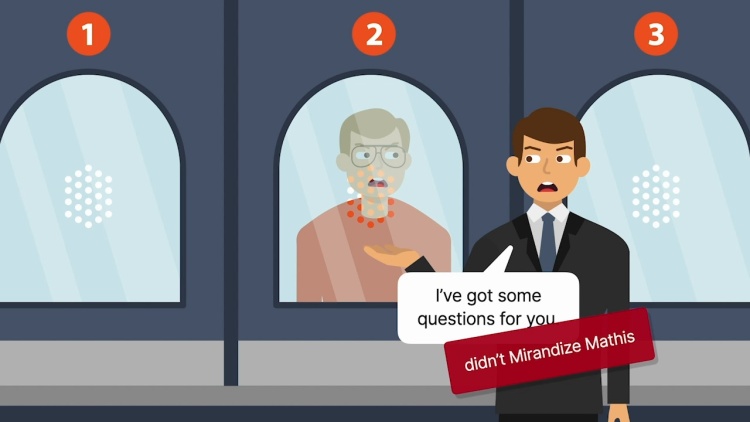Mathis v. United States
United States Supreme Court
391 U.S. 1 (1968)
- Written by Salina Kennedy, JD
Facts
Mathis (defendant) was serving a state prison sentence when an Internal Revenue Service (IRS) agent questioned him on several occasions as part of a tax investigation. The agent did not give Mathis Miranda warnings before questioning him. In response to questioning, Mathis made verbal statements and gave the agent documents that were used to convict him in federal district court on charges of knowingly filing false claims against the government. At trial, the agent testified that throughout his investigation, the possibility had existed that his work would lead to a criminal prosecution. The agent also testified that the criminal investigation of Mathis began eight days after the last time the agent questioned him. Mathis appealed his conviction, arguing that the evidence obtained during the interrogation should have been excluded because the IRS agent failed to inform Mathis of his Miranda rights. In opposing Mathis’s petition, the United States (plaintiff) argued that the IRS agent was not required to inform Mathis of his Miranda rights because the questioning was part of a routine tax investigation that might not have led to criminal charges. The court of appeals affirmed Mathis’s conviction, and the United States Supreme Court granted certiorari.
Rule of Law
Issue
Holding and Reasoning (Black, J.)
Dissent (White, J.)
What to do next…
Here's why 907,000 law students have relied on our case briefs:
- Written by law professors and practitioners, not other law students. 47,100 briefs, keyed to 996 casebooks. Top-notch customer support.
- The right amount of information, includes the facts, issues, rule of law, holding and reasoning, and any concurrences and dissents.
- Access in your classes, works on your mobile and tablet. Massive library of related video lessons and high quality multiple-choice questions.
- Easy to use, uniform format for every case brief. Written in plain English, not in legalese. Our briefs summarize and simplify; they don’t just repeat the court’s language.





